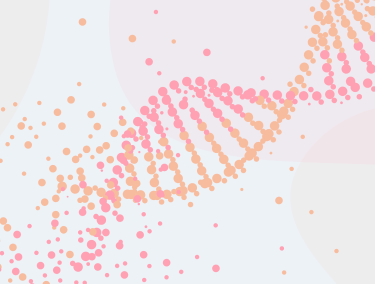Understanding the role of genetics in ovarian cancer
But ovarian cancer can also be passed down through families through mutations in sperm and egg cells (“germline” mutations). This doesn’t mean that everyone with a family member who has had breast, ovarian, uterine, or colorectal cancer will get cancer themselves, but they may be at a higher risk.2 Environmental and lifestyle factors can also play a part.1
 Genetics
Genetics
 Genetics
Genetics
 Genetics
Genetics
"If you have already been diagnosed with ovarian cancer, it’s important to know your genetic status as tumours caused by specific mutations may have varying levels of beneficial responses to different treatments."
Most germline mutations that are involved in the development of ovarian cancer are in the BRCA1 or BRCA2 genes.1 The presence of a BRCA mutation increases the lifetime risk of ovarian cancer from around 1% to as high as 44% depending on which variant is inherited.3 You can learn more about BRCA here.
There is also a significantly increased risk of ovarian cancer in people who have rare genetic conditions, such as Lynch syndrome, which is caused by mutations in the MLH1 or MSH2 genes.1
If you have a family history of cancer, but aren’t sure about specific genes, you may want to speak to a genetic counsellor who can offer screening tests for you and your relatives.4
You can learn more about the details of genetic testing here.
Preventative measures are also possible, such as surgery to remove the ovaries and fallopian tubes. Long-term drug treatment could also be an option, to reduce the risk of developing ovarian cancer. Knowing the symptoms can also help you to know when you should seek medical assessment. There may also be lifestyle changes that can be made to reduce cancer risk.4 You can read about the symptoms of ovarian cancer here.
Find out more
If you have already been diagnosed with ovarian cancer, it’s important to know your genetic status as tumours caused by specific mutations may have varying levels of beneficial responses to different treatments. You can learn more about treatments here, otherwise you can talk to your healthcare team and seek their advice.
Suggested further reading
Maintenance therapy
An explanation of additional therapies that are used to complement surgery and chemotherapy
Gene testing
Find out more about how family history can affect the chance of having ovarian cancer
Menopause and sexual relationships during ovarian cancer
Find out how ovarian cancer treatment can bring on early menopause and can impact your sex life




